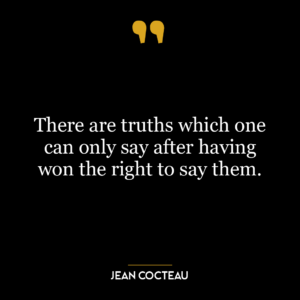This quote is a profound reflection on the hierarchy of values. It suggests that while gold and diamonds are materially valuable, virtue is of even greater worth. Gold and diamonds are symbols of wealth and luxury, but their value is transient and superficial. They are subject to market fluctuations and can be lost or stolen. They also do not contribute to the quality of a person’s character or actions.
On the other hand, virtue, which can be defined as moral excellence or righteousness, is an intrinsic value. It is enduring and cannot be taken away. Virtue contributes to the quality of one’s life, relationships, and impact on the world. It is a reflection of one’s character, which is more valuable than any material possession.
Applying this concept to today’s world, we often see an overemphasis on material wealth as a measure of success. However, this quote reminds us that moral character and virtuous actions are more valuable. For instance, a person can be wealthy but if they lack virtues such as honesty, kindness, or generosity, their wealth doesn’t contribute much to their character or to society.
In terms of personal development, this quote suggests that cultivating virtue is more beneficial than amassing material wealth. It encourages us to focus on developing qualities like integrity, compassion, and courage, which will enrich our lives and the lives of those around us in a more meaningful way. It also reminds us that while material possessions can provide comfort and convenience, they cannot bring true happiness or fulfillment, which come from living a virtuous life.











